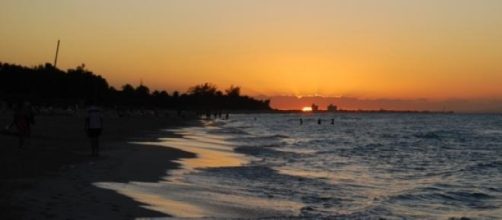President Obama`s administration announced on January 15 a new set of U.S. - Cuba travel regulations that took effect the following day. The rules are a result of a return to normal diplomatic relations with Cuba.
The release of Alan Gross, an American government subcontractor who had been jailed for five years in Cuba ushered in a change of U.S policy.
The New York Times reports that the new rules come into effect after Cuba freed 53 political prisoners it had agreed to release as part of a deal between Presidents Obama and Raúl Castro, Fidel's brother.
As part of the new rules, it will now be easier for Americans to travel to Cuba but it won`t be simple as booking a flight online. The announcement of the new rules provoked speculations in media suggesting that Americans tourists are not allowed. But senior U.S officials said that they were misleading.
In a conference call they clarified that the new rules are not meant to facilitate tourist travel to Cuba, as tourist travel remains prohibited by statute. The rules also states that who travel to the island will only be allowed to import up to $100 in alcohol and tobacco products. This sets a limit on the number of Cuban cigars they will be permitted to bring home.
However, they explained that the changes are going to ease their journeys as it has never been since 1961.
But in order to do so, they will have to meet one of the 12 criteria as stated by Roberto A. Ferdman in a Washington post blog.
Americans will have to fulfill one of the following categories: family visits, official business of the U.S. government, foreign governments, journalist assignments, professional research and meetings, educational and religious activities, public performances, clinics, workshops, athletic and other competitions and exhibitions.
What the new rules come to ease is that prospective travelers will no longer have to obtain a specialized license from the treasury department. In addition to that Airlines and travel agents will no longer need specialized license to provide service to Cuba.
"This seems to pave the way for a future in which leisure travel is more common, if not completely legal", noted the Washington post blogger. Roberto argues that in practice, this will effectively mean that Americans can claim they are traveling under one of the dozen approved categories, and then book a flight to Cuba.
Americans traveling to Havana will also be able to use credit cards, a restriction that used to complicate their stay. Moreover bilateral relations between the two countries are set to be boosted as the U.S government announced that it is planning to establish an embassy in Havana.
Meanwhile President Obama came under heavy criticisms from the Republicans for lifting more than half a century restrictions.
They are accusing him of playing into the hands of the Castro brothers by relaxing sanctions without obtaining commitments from them to expand freedoms for Cubans.
"This is a windfall for the Castro regime that will be used to fund its repression against Cubans, as well as its activities against U.S. national interests in Latin American and beyond", Senator Marco Rubio from Florida was quoted as saying by the New York Times.
President Obama on the other hand responded that the approach of the last 50 years has not worked and that it is time to try something new. Recall that the U.S embargo was first imposed in 1961 by President Eisenhower after Fidel Castro took power.

